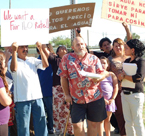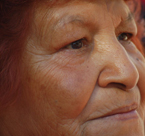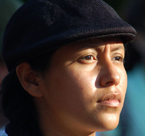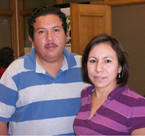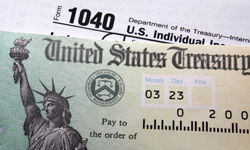Medi-Cal rules cut dental care for thousands in Valley
Posted at 09:05 PM on Sunday, Jan. 10, 2010
By Barbara Anderson / The Fresno Bee
Johnny Escobedo of Selma has 12 or 13 teeth in his mouth.
With help from Medi-Cal, the 64-year-old disabled maintenance worker had several teeth pulled this summer in anticipation of getting dentures.
But now his smile is in limbo: Medi-Cal changed its rules, and the state no longer will pay for his false teeth.
He can't afford the $1,500 to $2,000 it would take to get some. "I don't know what to do," he said.
Health advocates for the poor say thousands of people in the San Joaquin Valley are going without dental care or are struggling to pay for it since the state cut Medi-Cal dental benefits for most adults in July.
The cuts also are hurting community health centers and hospitals that provide dental services to low-income patients, as well as those dentists in private practice who were willing to take low Medi-Cal payments.
"It's hurting [patients], and it's hurting us," said Harry Foster, president and chief executive officer of Family HealthCare Network, which operates clinics in Tulare and Kings counties.
State health officials have acknowledged the cuts are painful, but said they were among several programs -- podiatry, optometry, audiology, speech therapy -- that the Legislature and Gov. Arnold Schwarzenegger eliminated to reduce a towering state deficit. The state estimates dental savings in 2009-10 will be $80 million to the state general fund.
Medi-Cal continues to provide dental services to children. Those services are mandated by the federal government. The adult services were optional. Medi-Cal is California's version of Medicaid, the state-federal insurance program for the poor.
The state still pays for emergency dental work to relieve pain, infection or in the case of trauma. And pregnant women can get some services. Seniors in nursing homes and some of the developmentally disabled also still have dental benefits.
But for most adults, Medi-Cal will not pay to fill a cavity, replace a crown, fit dentures, or even for preventive work such as teeth cleaning.
From July to December 2008, nearly 286,000 adults from Merced to Tulare were eligible for dental benefits, and almost 35,000 had dental work done. During that same period in 2009, only 11,920 had dental services performed.
Escobedo has until July to get his remaining teeth pulled for Medi-Cal to pay -- the benefit continued because he began the extractions before the program was cut.
But the state refuses to pay for false teeth, because a second set of X-rays required to replace blurry ones were not submitted until after July 1, when the cuts went into effect.
Escobedo has appealed the state's decision, but he doubts he will win.
He is torn as to whether he should have the rest of his teeth pulled.
He lives on $865 a month in Social Security. Paying for dentures is out of the question, he said. "I'm barely making it." And the 12 or 13 teeth he has left: "They're pretty good ones," he said.
Stephen Schilling, executive officer at Clinica Sierra Vista, which owns community health centers in Bakersfield and Fresno, said clinics are taking a financial hit and are having to adjust. To make up for the loss in adult dental patients, they're focusing on dental services for children, he said.
Community Regional Medical Centers had planned to move a dental clinic at the old University Medical Center campus on Kings Canyon Road to a new ambulatory-care center scheduled to open in March on the downtown regional center's campus. Those plans have been scrapped, said hospital official John Zelezny.
Henry Cisneros, chief dental officer for Family HealthCare, said the loss of adult Medi-Cal patients has hurt some dentists.
"Weekly, I'll receive one to three calls from dentists looking for part-time work or full-time work," he said. "It's kind of amazing."
Many dentists refuse to take Medi-Cal patients because of the state's low reimbursement, but about 4,000 in California have very active Medi-Cal practices, said Gayle Mathe, manager of policy development for the California Dental Association.
Her concern is how many dentists will be available should benefits be restored at some point. In other states where adult dental services were cut, dentists abandoned the program and did not come back, she said.
For example, Michigan dropped adults in 2004. At that time, 1-in-4 dentists accepted Medicaid patients, Mathe said. Two years later, when the state reversed itself, only one in about six dentists accepted patients, she said.
States found medical costs increase for people with untreated dental disease, Mathe said.
People come to medical clinics in pain from infected and abscessed teeth, Schilling said. Medical staff can't pull the teeth, he said. "What they're doing is handing out pain medications and sending people to emergency rooms."
With the dental benefit cuts, hospitals in California can expect 17,000 additional emergency room visits and more than $11 million in emergency-room charges, Mathe said.
Emergency rooms are not where dental patients belong, said Dan Allain, director of emergency and critical-care services at Kaweah Delta Hospital.
"All we can do is treat the infection," he said. "What they really need is someone to take care of the dental issue itself."
The reportercan be reached at banderson@fresnobee.com or (559) 441-6310.
Medi-Cal rules cut dental care for thousands in Valley
By Evan George
Daily Journal Staff Writer
Asked how California's budget cuts have hurt him, Johnny Escobedo smiles: the Fresno man is missing half his teeth.
The state covered the cost to extract Escobedo's sick teeth last June. When he tried to get dentures approved in July, lawmakers had erased dental benefits from Medi-Cal, the state's health insurance program for indigent patients.
Because Escobedo, 64, relies on social security as his only source of income, he was unable to pay for the procedure.
"They said it was too late, now I'm stuck," Escobedo said.
Health advocates claim his is the face of budget cuts harming poor Californians who must skip much-needed medical care after more than $1.4 billion in cuts to state health care programs last year. Though rarely life-and-death, the lack of services can prevent people from being hired by employers and trigger more serious medical problems.
"We're confining them to a second-class citizenship. It's real obvious when you have teeth missing," said Yolanda Reeves, an attorney with the Fresno Health Consumer Center who is helping him appeal to an administrative law judge.
Escobedo is one of nearly 3 million low-income adults in California who lost key medical benefits, including optometry and psychological services, which the state used to cover until the budget cuts took effect in July.
About 450,000 of those patients had to forego or pay for dental services as a result of the cuts, while 240,000 lost coverage for prescription lenses. Approximately 93,000 low-income children had coverage delayed until lawmakers saved funding for the Healthy Families program the governor eliminated.
Those statistics are part of a report released by health advocates on Thursday, the eve of Schwarzenegger's unveiling of his budget proposal and its expected cuts to the state's key health programs.
Healthy Families, a state and federal partnership program that covers uninsured children whose families are not eligible for Medi-Cal, may not escape elimination this time around.
"Although the gap of $20 billion is smaller than the $60 billion gap last year, in many ways closing the smaller gap is going to be harder," said H.D. Palmer, a California Department of Finance spokesman.
That is because some of the 2009 cuts were one-time savings and because fewer federal stimulus dollars will flow into California coffers in 2010, Palmer said. The state has also run into legal trouble with many of its budget plans.
"The courts, both state and federal, have enjoined [us] from enacting many of the solutions," Palmer said.
Federal courts have consistently rejected the state's attempt to downsize Medi-Cal by 10 percent across the board.
Anthony Wright, director of Health Access, the Sacramento-based group that released Thursday's report, said the purpose was to remind lawmakers of the impact that health care reductions have already had on vulnerable Californians before they slash more.
"These cuts are starting to ripple through the health system and our economy, as we lose health jobs and federal matching funds, and people don't get the help they need to get through these tough times," Wright said.
The report also cited one death the group believes the health cuts caused. An unnamed female patient who received therapy at the Feather River Tribal Health Clinic in Oroville was close to leaving her abusive husband, according to her therapist, when funding was cut-off and she stopped coming. That patient turned up murdered, allegedly by the abusive husband, the therapist told the clinic's director.
The report found five community clinics that rely on Medi-Cal payments have been shuttered as a result of the cuts. Health Access and other groups have proposed the governor look at ways to generate revenue rather than cut heath services.
Escobedo said he hoped the government would allow people like him who already started treatment before the cuts to continue to do so.
He said Medi-Cal will cover the cost to remove the rest of his teeth if he completes the procedure in the next few months. He's afraid to do that until he hears word that the denial of dentures may be overturned.
"I can't be without teeth," he said.
evan_george@dailyjournal.com
posted 1/12/10
Evan George
Staff Writer

